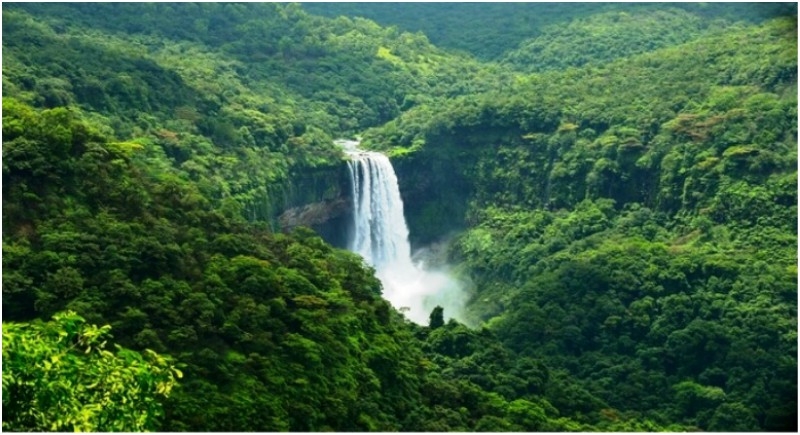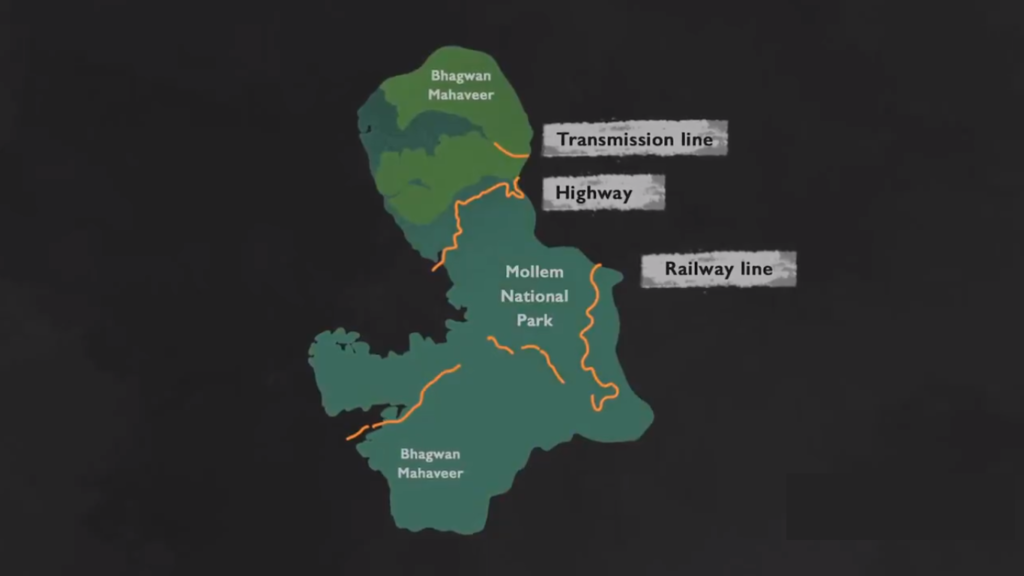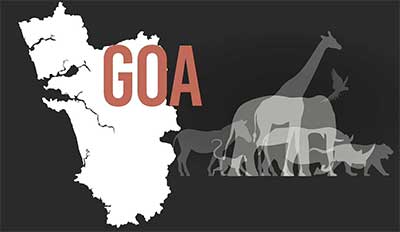Goa a state in Western India is a loved tourist place very famous for its beaches, thrilling water sports, scrumptious seafood, entertaining Carnival festival, lavishness in cruises, nightclubs, stunning nightlife, Architecture wonders, churches (old goa), tropical spices plantation, paddy fields. But did you know over a third of Goa is covered by forest? The smallest state of India, with a lot of greenery, has a lot of wildlife sanctuaries and is a treasure house of biodiversity parks such as Bondla, Cotigao, Netravali, Bhagwan Mahaveer wildlife sanctuary, and Mollem national park.

(Photo by Alamy)
WHY MOLLEM NEEDED OUR ATTENTION?
For many years now, Goa, a dream holiday spot for tourists across the world, has been struggling to protect its identity and its natural diversity from the industrial onslaught. A few days back Mollem, a popular tourist spot needed amplifying attention and support.
Mollem is a small village in Goa, South India on national highway 4, Near the border with Karnataka, in the foothills of the Sahyadri Mountain range, at the beginning of Anmod Ghat with rich biodiversity. This area comes under the Sanguem block. It is the primary entry point for the Bhagwan Mahaveer sanctuary (since 1969) and Mollem national park (since 1978).
Since November 2020, hundreds of villagers and flash mobs in Goa have been protesting against three major infrastructure projects development. These projects were a potential hazard to all.
These projects involved the expansion of a highway, double-tracking of an existing railway line, and setting up of transmission power line targeting the Bhagwan Mahaveer Sanctuary and Mollem national park areas. Among the three projects, two had received the National Board of Wildlife’s approval during the lockdown period in India 2020.

It was predicted that the hazard would be huge and will result in spills and cutting through forest protected areas across 240 square km(93sq miles) into the Western Ghats which are recognized by UNESCO as one of the World’s eight ‘hottest hotspots ‘ of biodiversity.
Reports suggested that MPT aimed to import 51.6 million tons of coal by 2030. This would further lead to damage of state biodiversity and Mollem village would be on the verge of extinction leading to the mass mobilization of about 2 million Indians.
SAVE MOLLEM CAMPAIGN
Goan youth and people from all parts of the country appealed to the judiciary to save Mollem. The Save Mollem Campaign began with huge virtual mass gatherings and other forms of campaigns with thousands of concerned humanitarians including citizens, local residents, scientists, activists, students and many other people showing their concern towards the underlying environmental issues these projects would bring in. Social media was a huge platform from where support was seen coming. Protesters demanded the government to put a halt on these projects that suit corporate needs. Some also asked for projects to be scrapped off over threats to the park and nearby sanctuary.

FINAL HEARINGS
S.C appointed Central empowered committee(CEC) for investigation and CEC found no reasonable justification to allow corporate project as they do not find any sound reason based on the facts for undertaking the project that causes harm to pristine forest and an important wildlife corridor with a persistent and fragile ecosystem of Western ghats.
This order comes as a tremendous respite after thousands of protesters protested relentlessly to amplify online campaigns and petitions urging the government to retract this project.
WHY ARE CAMPAIGNS LIKE THESE IMPORTANT?
It is a matter of concern for all of us and regardless of which part of the country or globe we live in it is important for all of us to support the ‘Save Mollem Campaign’ and other such campaigns. We all need good changes and therefore we need to be the change that we want to bring.
It is Goa struggling today, the country’s smallest state, it could be your home state next. It is only possible when we stand United.
We need local voices to be heard louder. Unless collective dissent is amplified, India’s environment will continue to be traded to private players.
Here’s hoping that better sense prevails and Goa continues to be the green haven it has always been.
Written By: Aareefa Ali
Editor and Team Lead: Tanya Kaushik
